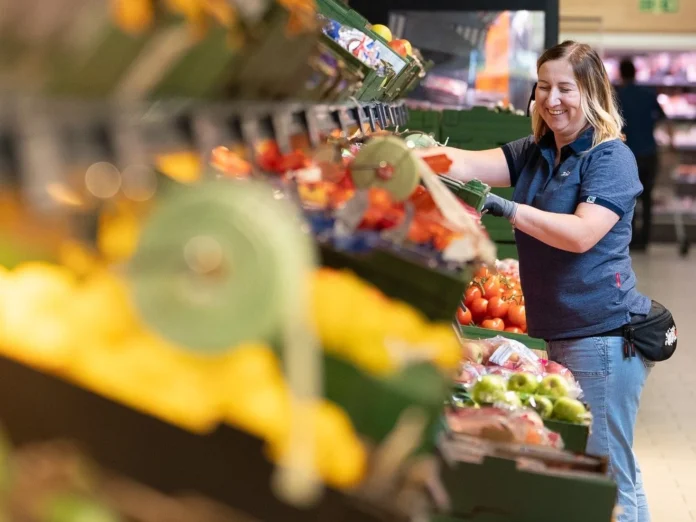Discounter slashes food waste by 43%, leading Lidl GB’s remarkable sustainability progress. Lidl discounter slashes food waste through significant environmental initiatives. Lidl aims to slash food waste half by 2030 while reducing plastic packaging.
Since 2016, Lidl discounter slashes food waste, donating over 26 million meals to communities in need. Lidl’s efforts resulted in 6 million meals donated in 2022 alone, exceeding its targets. Their “Too Good to Waste” program sold 1.7 million boxes, saving nearly 9,000 tonnes of food from waste. Each box contains 5kg of fresh produce, supporting Lidl’s goal to slash food waste half and help customers save.
Lidl GB focuses on reducing plastic packaging, cutting it by 29% since 2017 with a goal of 40% by 2025. The company ensures 95% of its packaging is recyclable, reusable, or refillable, aligning with its waste half plastic packaging target.
Lidl partners with Prevented Ocean Plastic, preventing the equivalent of 15 million plastic bottles from entering the ocean. Lidl aligns with WWF’s Retailers’ Commitment for Nature to slash food waste half and support nature conservation.
The discounter addresses carbon footprint reduction by collaborating with suppliers through various carbon reduction projects. Lidl supports water catchment initiatives, funding projects with The Rivers Trust and planning nine by 2025. Lidl GB promotes sustainable farming, with 45% of British fruit and vegetable suppliers LEAF Marque certified. The company aims for 100% certification by the end of the year to meet its sustainability goals.
Lidl trialled smart refills in 2022, receiving positive feedback from customers and reducing packaging waste in London, UK. Lidl discounter slashes food waste half and continues innovating with sustainability initiatives like the Eco-Score rating system.
Mark Newbold, Senior CSR Manager at Lidl GB, emphasized the company’s commitment to sustainable practices and carbon reduction. Lidl GB will invest £17 billion in British food and farming businesses by 2025, ensuring a sustainable supply chain.
To learn more about Lidl’s sustainability efforts and career opportunities, visit lidlcouk careers property. Lidl’s Good Food report highlights significant achievements in reducing food waste, plastic packaging, and carbon emissions.

